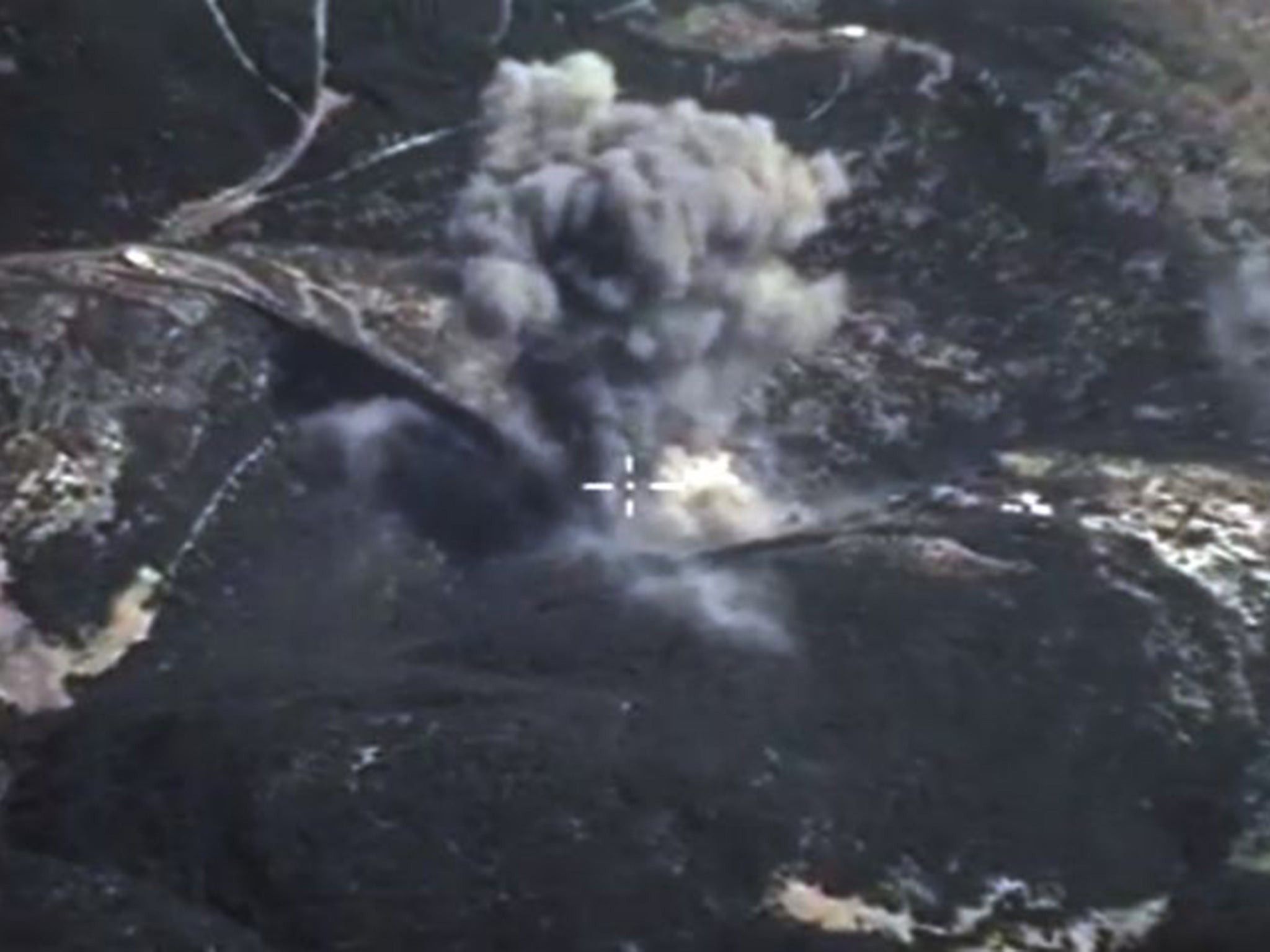Syria crisis: President Assad gives backing to intensified Russian air attacks
Mr Assad hailed the Russian action and said that the failure of an axis comprising Syria, Russia, Iran and Iraq would destabilise the entire region

Your support helps us to tell the story
From reproductive rights to climate change to Big Tech, The Independent is on the ground when the story is developing. Whether it's investigating the financials of Elon Musk's pro-Trump PAC or producing our latest documentary, 'The A Word', which shines a light on the American women fighting for reproductive rights, we know how important it is to parse out the facts from the messaging.
At such a critical moment in US history, we need reporters on the ground. Your donation allows us to keep sending journalists to speak to both sides of the story.
The Independent is trusted by Americans across the entire political spectrum. And unlike many other quality news outlets, we choose not to lock Americans out of our reporting and analysis with paywalls. We believe quality journalism should be available to everyone, paid for by those who can afford it.
Your support makes all the difference.Russia intensified its bombardment of militant targets in Syria on 4 October with attacks in Homs and Idlib provinces, despite the chorus of criticism from Nato countries.
Turkey became the latest member of the alliance to lambast Moscow over its military action in Syria, which, against the wishes of many Western governments, is explicitly designed to shore-up the government of Bashar al-Assad, as well as to diminish Sunni Muslim militants. Speaking before a visit to Paris, Turkey’s President, Recep Tayyip Erdogan, said that Ankara was “saddened and perturbed” by Russia’s action, adding that Vladimir Putin was making a “grave mistake” that risked diminishing Russian influence in the Middle East.

Despite the outcry over the attacks – which opponents of the Kremlin say are hitting all of Mr Assad’s opponents, and not just Isis – Russian bombers continued to strike targets. In a detailed update, the Russian Foreign Ministry said that its air force – using precision munitions, it claimed – had hit 10 Isis targets during 20 sorties. Included in the strikes was an explosives manufacturing facility in Idlib province, and four Isis command posts.
Speaking to Iranian television, Mr Assad hailed the Russian action and said that the failure of an axis comprising Syria, Russia, Iran and Iraq would destabilise the entire region.
“The chances of success for this coalition are great and not insignificant,” Mr Assad said, as he warned that the price paid by Syria’s allies “will certainly be high”. Calling on Western countries, including Britain, the US and France, to join his coalition, he argued: “If these states join the fight against terrorists in a serious and sincere manner, at least in terms of stopping them getting support, we will achieve results much faster.”
The chances of Nato members aligning with Mr Assad and Mr Putin in co-ordinated action against Isis are slim. However, Angela Merkel yesterday went beyond other Western allies by repeating her demand that the Assad administration had a role to play in Syria’s future.
In an interview with a radio station, the German chancellor said: “To get to a solution, we need both the representatives of the Syrian opposition and those who are currently ruling in Damascus, and others as well, to reach for real successes – and then, above all, also the allies of the respective groups.”
Washington has recently softened its line on Mr Assad, saying that it was not setting a timetable for his departure.
Join our commenting forum
Join thought-provoking conversations, follow other Independent readers and see their replies
Comments